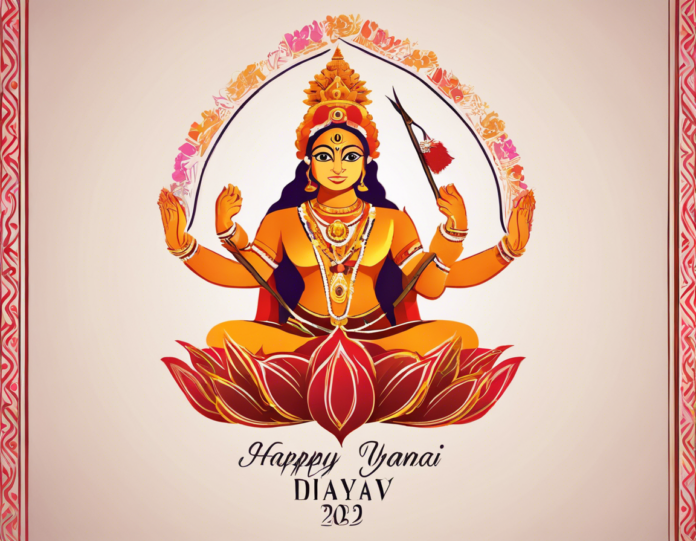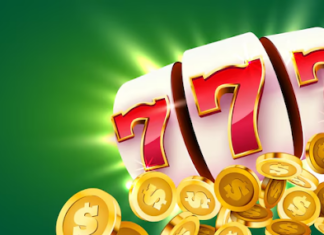As the vibrant festival of Vijaya Dashami approaches, millions of Hindus around the world gear up to celebrate the triumph of good over evil. Vijaya Dashami, also known as Dussehra, is one of the most significant Hindu festivals and is observed with great enthusiasm and fervor. This auspicious day marks the victory of Lord Rama over the demon king Ravana, symbolizing the victory of righteousness over evil. In this comprehensive guide, we will delve into the various customs, rituals, and significance of Vijaya Dashami, offering a deeper insight into this joyous occasion.
Significance of Vijaya Dashami
Vijaya Dashami holds immense significance in Hindu mythology and culture. The word “Vijaya” means victory, while “Dashami” refers to the tenth day of the Hindu lunar calendar month. The festival culminates on this day after the nine days of Navaratri, during which various forms of the goddess Durga are worshipped.
The primary significance of Vijaya Dashami lies in the triumph of good over evil. It symbolizes the victory of Lord Rama, an incarnation of Lord Vishnu, over the ten-headed demon king Ravana. This epic battle, as narrated in the Hindu scripture Ramayana, is a testament to the power of righteousness and the eventual triumph of truth.
Customs and Rituals
Ram Lila Performances
One of the most common customs associated with Vijaya Dashami is the staging of Ram Lila performances. These dramatic enactments of the Ramayana depict the life and journey of Lord Rama, culminating in the final battle against Ravana. People from all walks of life gather to watch these performances, which often include elaborate costumes, music, and dialogues.
Ravana Dahan
Another prominent ritual during Vijaya Dashami is the burning of effigies of Ravana, Meghnath, and Kumbhkaran. This symbolic act signifies the destruction of evil forces and is a reminder of the ultimate victory of good over evil. The towering effigies are set ablaze amidst chants and celebrations, creating a spectacle of light and sound.
Sindoor Khela
In some parts of India, particularly in West Bengal, Vijaya Dashami is marked by a traditional ritual known as Sindoor Khela. During this ceremony, married women apply vermillion (sindoor) on each other’s foreheads and play with sindoor, symbolizing the joy of married life and the bond of sisterhood.
Offering Prayers
Devotees visit temples and offer prayers to seek blessings for prosperity, happiness, and success. Special pujas are performed in honor of Lord Rama and Goddess Durga, invoking their divine grace and seeking their protection. The fragrance of incense, the sound of bells, and the rhythmic chants create a sacred ambiance during these prayers.
Vijaya Dashami Celebrations Around the World
Vijaya Dashami is celebrated with zeal not only in India but also in various parts of the world where the Hindu diaspora resides. Countries like Nepal, Bangladesh, Sri Lanka, and Mauritius observe this festival with cultural performances, religious ceremonies, and community gatherings. In these diverse settings, the spirit of Vijaya Dashami unites people in joy and reverence, transcending geographical boundaries.
FAQs (Frequently Asked Questions)
-
What is the significance of Vijaya Dashami?
Vijaya Dashami symbolizes the victory of good over evil, particularly the triumph of Lord Rama over Ravana in the Hindu epic Ramayana. -
How long does the festival of Vijaya Dashami last?
Vijaya Dashami is celebrated for ten days, with the final day marking the victory of Lord Rama over Ravana. -
What are some traditional customs associated with Vijaya Dashami?
Some traditional customs include Ram Lila performances, Ravana Dahan (burning effigies of Ravana), Sindoor Khela (playing with vermillion), and offering prayers at temples. -
Why is Ravana effigy burned on Vijaya Dashami?
Burning the effigy of Ravana symbolizes the triumph of good over evil and serves as a metaphorical cleansing of negative forces. -
How do people celebrate Vijaya Dashami around the world?
Vijaya Dashami is celebrated with cultural performances, religious ceremonies, and community gatherings in various countries with Hindu populations, including India, Nepal, Bangladesh, Sri Lanka, and Mauritius.
Conclusion
In conclusion, Vijaya Dashami is a vibrant and joyous festival that holds immense cultural and religious significance for Hindus worldwide. The celebration of righteousness, the victory of good over evil, and the divine grace of Lord Rama and Goddess Durga are central themes of this auspicious occasion. Through customs, rituals, and prayers, devotees come together to commemorate this victory, seek blessings, and revel in the spirit of Vijaya Dashami. May this festival bring peace, prosperity, and happiness to all who celebrate it with faith and devotion.









